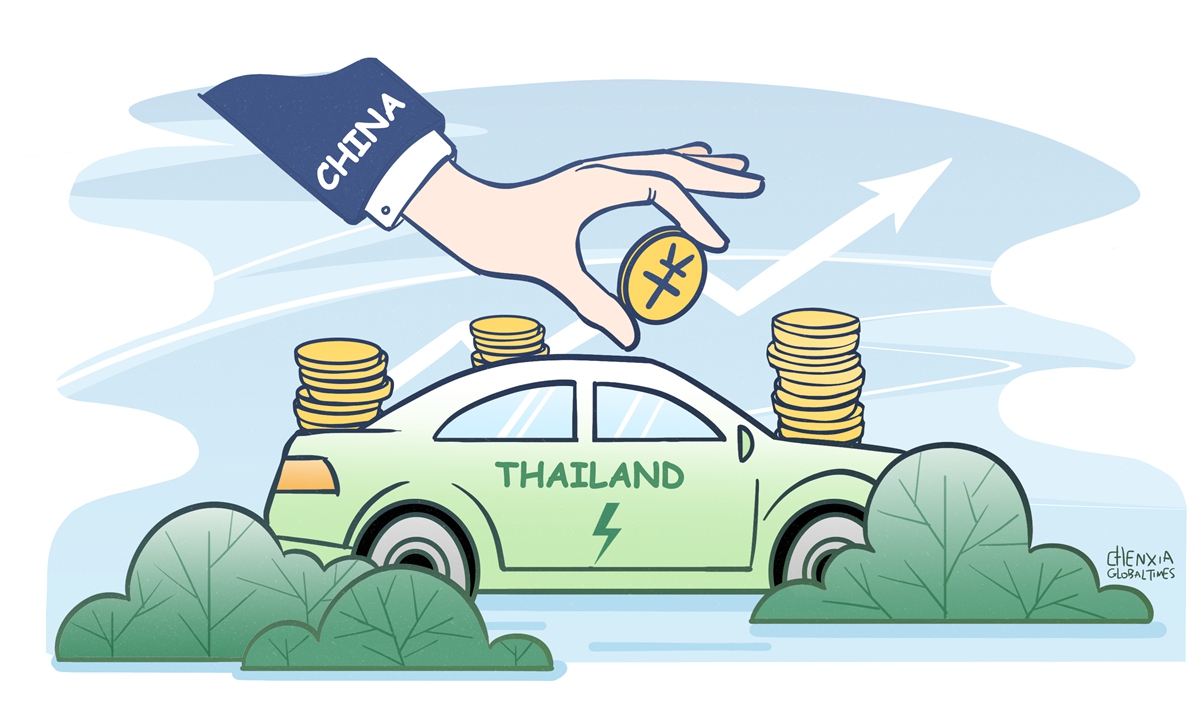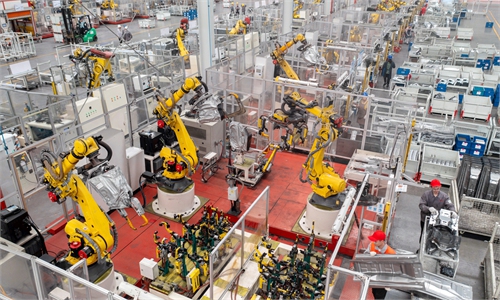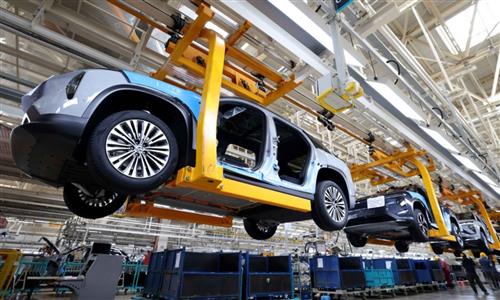
Illustration: Chen Xia/Global Times
As the increasing investment brought by Chinese electric vehicle (EV) manufacturers has been boosting EV sales and reshaping the auto market of Thailand in recent years, Japanese automakers fear losing their dominant position in Southeast Asia's largest car producer and exporter, Reuters reported on Monday.Chinese EV makers have invested $1.44 billion in Thailand since 2020, making China as Thailand's top foreign investor last year, surpassing Japan. Local automakers are seeking cooperation with Chinese EV makers to capture the new growth points amid the transition to EVs, according to Reuters.
The strong momentum of Chinese EV manufacturers' expansion in the Thailand market exemplifies their growing presence in the global market. Supported by the advantages of price, quality and leading position, China's EV industry has not only entered the Southeast Asian market, but is also expanding to the European, Australian and North American markets. In the first quarter of this year, China has surpassed Japan to become the world's largest car exporter.
Some Japanese media have expressed their concerns about the strong growth of China's auto industry, especially the EV industry, for a period of time, fearing that the leading position that the Japanese auto industry has established in the global market over the past few decades will be replaced.
However, this is actually an inevitable trend. When Japanese automakers are still hesitating about the emerging industries, China's EV industry is developing at full swing amid the overall manufacturing upgrading process.
Chinese manufacturers were estimated to account for 40 percent of global EV sales in 2022, according to Japanese media Nikkei's calculations based on data from research firm MarkLines. American and European manufacturers accounted for 30 percent and 20 percent respectively, while Japanese manufacturers only accounted for less than 5 percent, Nikkei reported in December 2022.
Against the backdrop of Western countries hyping supply chain relocations from China, the China-led EV boom in overseas markets shows that China's position as the world's manufacturing hub remains solid and speaks volumes for the strong momentum of the future growth of China's manufacturing.
The advantages and resilience of China's manufacturing industry are reflected in the close integration of China's manufacturing industry with the consumer market, and the combination of price and quality advantages. In addition, China is overtaking other countries in new competition lanes, such as in many emerging industries, including EV and photovoltaics.
Attempting to contain China's continued development of emerging industries and the trend of Chinese manufacturing moving upstream in the global value chain, some Western politicians have been inciting the so-called moving of supply chain out of China. However, the fact is that during the COVID-19 pandemic, the world's dependence on Chinese products has actually increased, and the connection between the world and China has been strengthened.
According to data from China's Ministry of Industry and Information Technology, in 2022, the added value of China's manufacturing industry accounted for nearly 30 percent of the world's total, and the scale of its manufacturing has ranked first in the world for 13 consecutive years.
The vigorous development and industrial upgrading of China's manufacturing industry is good news for other countries. For example, the increased investment of Chinese EV manufacturers in the Thailand market has created new growth points for the local economy, and is therefore welcomed by local companies. For Southeast Asian countries, it is rational to seize the development dividend of China's EV industry, consolidate the regional industrial chain, and strengthen trade and investment arrangements.
Hyping up the competition between China and Japan in overseas markets does not mean much to Southeast Asian countries and Japan.
What matters most is how all parties should strengthen coordination in global value chains and further tap the dividends of economic and trade cooperation.
The author is a reporter with the Global Times. bizopinion@globaltimes.com.cn



